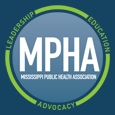Keywords
healthy aging, reframe aging, ageism, aging in community
Document Type
Commentaries
Abstract
The remarkable increase in longevity is the pivotal triumph of public health over the last two centuries. Yet, even as we experience the benefits of increased longevity, we continue to face rampant ageism – or the prejudice and discrimination directed at individuals perceived as 'old.' Worst of all, we know that ageism is associated with increased medical costs, poorer health outcomes, and increased mortality. Efforts to combat ageism have been insufficient. The triumvirate of ageism, gerontological illiteracy, and gerontophobia have resulted in a deficit model of aging. Far from being a liability, the rapid increase in the aging population presents an unparalleled opportunity for society to rethink what it means to age. This shift enables us to dismantle outdated stereotypes and recognize older adults' invaluable contributions. Across three misconceptions, examples are provided on moving from a deficit to a strength-based perspective to promote healthy aging.
Recommended Citation
Guest, A.
(2024). Aging Redefined: Moving Past the Deficit Model.
Journal of Public Health in the Deep South, 4(1), 8.
DOI: https://doi.org/10.55533/2996-6833.1080

